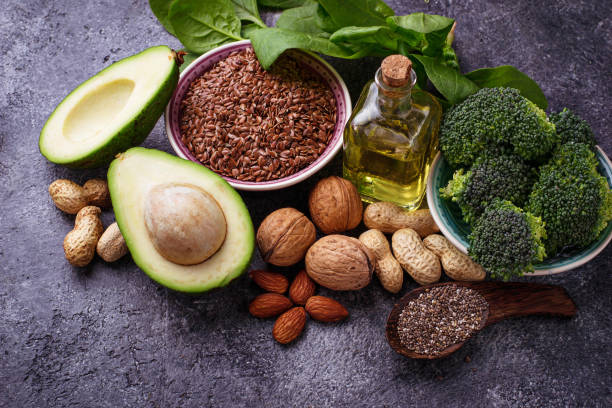Vegan sources of Omega-3 fatty acids offer numerous health benefits, providing an alternative for those who follow plant-based diets or have dietary restrictions. The primary Vegan Omega-3 source is Alpha-Linolenic acid (ALA), which the body can convert into Eicosapentaenoic Acid (EPA) and Docosahexaenoic Acid (DHA), although this conversion is less efficient compared to direct consumption of EPA and DHA from marine sources.
Here are some benefits of incorporating Vegan Omega-3 sources into your diet:
- Heart Health:
ALA, the Vegan Omega-3 found in plant sources like flaxseeds, chia seeds, and walnuts, has been associated with cardiovascular benefits. It may help reduce the risk of heart disease by lowering blood pressure and improving cholesterol levels. - Brain Function:
While DHA is abundant in fatty fish and is crucial for brain health, ALA from plant-based sources may still contribute to cognitive function. Some studies suggest that maintaining optimal ALA levels may support overall brain health. - Anti-Inflammatory Effects:
Vegan Omega-3s have anti-inflammatory properties, similar to those found in marine sources. Chronic inflammation is linked to various health issues, and incorporating plant-based Omega-3s may help mitigate inflammation in the body. - Joint Health:
Omega-3 fatty acids, including those from plant-based sources, may benefit joint health by reducing inflammation and alleviating symptoms associated with conditions like rheumatoid arthritis. - Eye Health:
While DHA is crucial for eye health, some studies indicate that maintaining a diet rich in ALA may have positive effects on eye health, potentially reducing the risk of certain eye conditions. - Skin Health:
Omega-3 fatty acids play a role in maintaining skin health. Vegan sources such as flaxseed oil or chia seeds can contribute to skin hydration and may alleviate certain skin conditions.
While Vegan Omega-3 sources offer several health benefits, it’s essential to be mindful of the efficiency of ALA conversion to EPA and DHA. In some cases, individuals following vegan or vegetarian diets may choose to supplement with algae-based omega-3 supplements to ensure sufficient intake of DHA. Consulting with a healthcare professional or a registered dietitian can help tailor Omega-3 intake to individual dietary needs and health goals.


